This site is being reviewed and updated as needed to comply with President Trump's executive orders.
R3: An Exciting New App to Help Recognize, Report, and Respond to Abuse
Mariah C. Freark, Director of Intake, Massachusetts Disabled Persons Protection Commission
November 2023
The Massachusetts Disabled Persons Protection Commission (DPPC) and its project partners are excited to announce the release of DPPC’s R3 app to help adults with disabilities to recognize, report, and respond to abuse. The R3 app was designed and developed by the Accessible and Socially Aware Technologies (ASSET) Lab at the University of Rhode Island (URI) in partnership with DPPC, self-advocates from Massachusetts Advocates Standing Strong (MASS), the Worcester Polytechnic Institute, and the Massachusetts Department of Developmental Services (DDS). Input from people with disabilities, including intellectual and/or developmental disabilities, was the most critical component in building the app. John Mullally, a MASS consultant and self-advocate on the R3 project, explains, “R3 was built by us for the community. It is a way people can have freedom.”
The R3 app, thoughtfully designed with and for adults with disabilities, will help educate adults with disabilities and others about abuse by using technology to make this difficult but important topic accessible to many throughout the country. R3 was built to be used flexibly, in any way that works for the user, and the project team hopes users will tell others who might be interested and can benefit from it. The project team first conducted focus groups with adults with disabilities to learn how they use technology and whether they thought an app would be helpful. Throughout the process, the team’s self-advocate consultants provided crucial input on development, images, and text. Moreover, as the app was being created, the developers used a co-design process where they met virtually with individuals with disabilities and walked them through different versions of the app to receive feedback in real time. Notably, several participants in the user studies spontaneously declared that they use the app to show a trusted person specific videos, images, or scenarios to say, “Something like this happened to me.”
The R3 app is designed to serve the community of people with disabilities in multiple ways, including helping them: understand abuse so they can protect themselves and others; feel empowered with this knowledge about abuse and from using the app independently, especially since it is designed to give them the power of choice at every turn; and feel important because the app was designed just for them. R3 was designed to be used by many different types of adult users, including adults with intellectual and/or developmental disabilities, older adults, care providers, and others. R3 is not tailored to Massachusetts law but instead provides an overview of five common types of abuse – physical, emotional, sexual, financial, and neglect. Although R3 contains information specific to reporting abuse to DPPC, it also provides out-of-state users with a link to the website of the National Adult Protective Services Association, where they can find information on where to report abuse for their own state.
DPPC Executive Director Nancy Alterio is grateful for the incredible work of the multidisciplinary project team, which included dedicated self-advocates Melissa Beauregard, Brian Kelly, and John Mullally, all from MASS; academic professionals Dr. Krishna Venkatasubramanian from the University of Rhode Island, Dr. Jeanine Skorinko from the Worcester Polytechnic Institute, and independent consultant Dr. Tina Marie Ranalli; and Assistant Commissioner Laney Bruner-Canhoto from Massachusetts DDS. “The priority of DDS is to always better serve and protect the individuals we support, so we were thrilled to collaborate with the DPPC and the project team on this important initiative,” said DDS Commissioner Jane Ryder. “We are proud of this project, its mission to better protect individuals and hold offenders accountable, and look forward to sharing this with our community.”
For more information about the R3 project, you can visit DPPC’s R3 webpage. R3 is available for download from the Apple app store and Amazon app store. And the project team is busy working on a companion self-care app designed to be accessible to a wide variety of users, expected to be available in autumn of 2024.
DPPC is grateful to its federal funder, the Administration for Community Living, for the opportunity to build this app. The R3 project was supported by a grant (No. 90EJSG0015-01-00) from the Administration for Community Living (ACL), U.S. Department of Health and Human Services (DHHS) as part of a financial assistance award totaling $668,777.53 with 100% funded by ACL/DHHS. Grantees carrying out projects under government sponsorship are encouraged to express freely their findings and conclusions. Therefore, the points of view or opinions do not necessarily represent official ACL or DHHS policy. The R3 project is based in significant part on the Awareness & Action (A&A) training designed by the Building Partnership for the Protections of Persons with Disabilities Initiative (BPI), the Massachusetts Disabled Persons Protection Commission (DPPC), persons with disabilities, and others to teach people with intellectual or developmental disabilities about recognizing, reporting, and responding to abuse. The A&A curriculum development was funded in 2007 by grant No. 2007-VF-GX-K035 awarded by the Office for Victims of Crime, Office of Justice Programs, U.S. Department of Justice. Points of view in the A&A or R3 materials are those of the author(s) and do not necessarily represent the official position of the U.S. Department of Justice.
Additional Resources
- Download the R3 app on the Apple App Store
- Download the R3 app on the Amazon Appstore
- APS TARC Podcast - “Recognize, Report, Respond - Co-Designing a Technology-Based System”
The APS Blog is updated regularly with posts from contributing authors and new publications from the APS TARC.
How did we do? Take our quick customer satisfaction survey to give us feedback.
Last Modified: 11/30/2023

